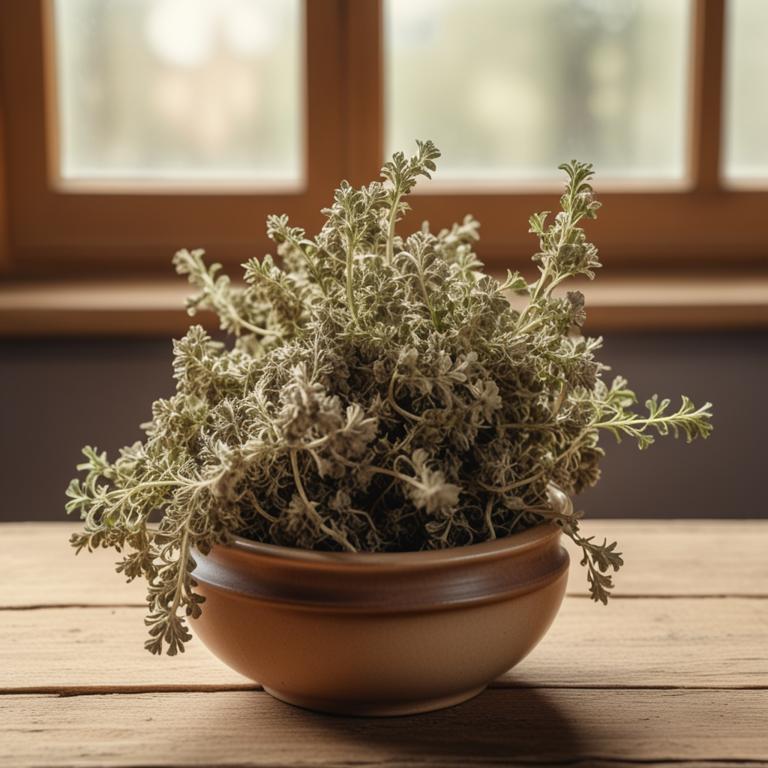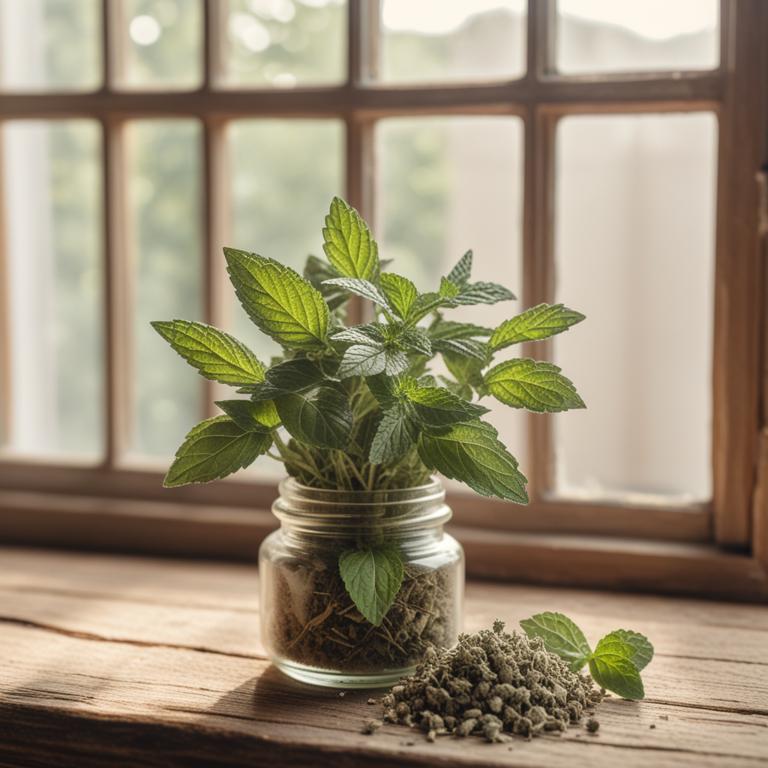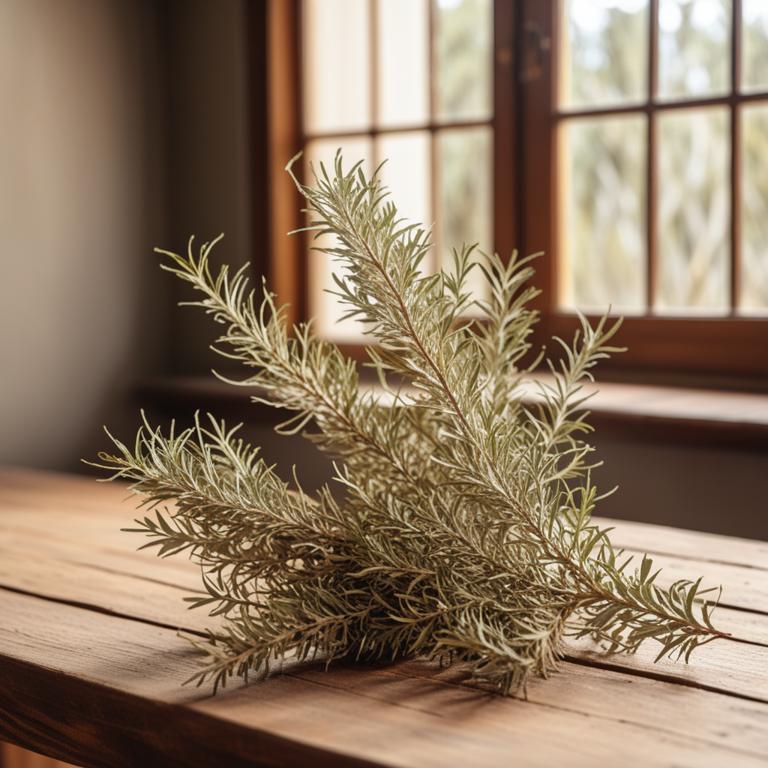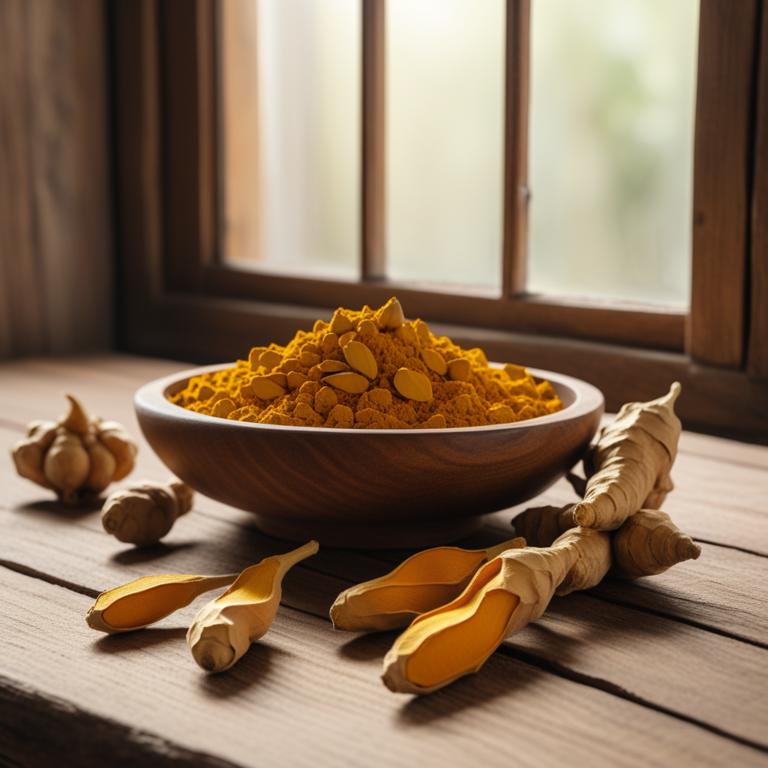Updated: Dec 1, 2024
The Dry Nose Dilemma: Causes, Herbal Preparations, and More
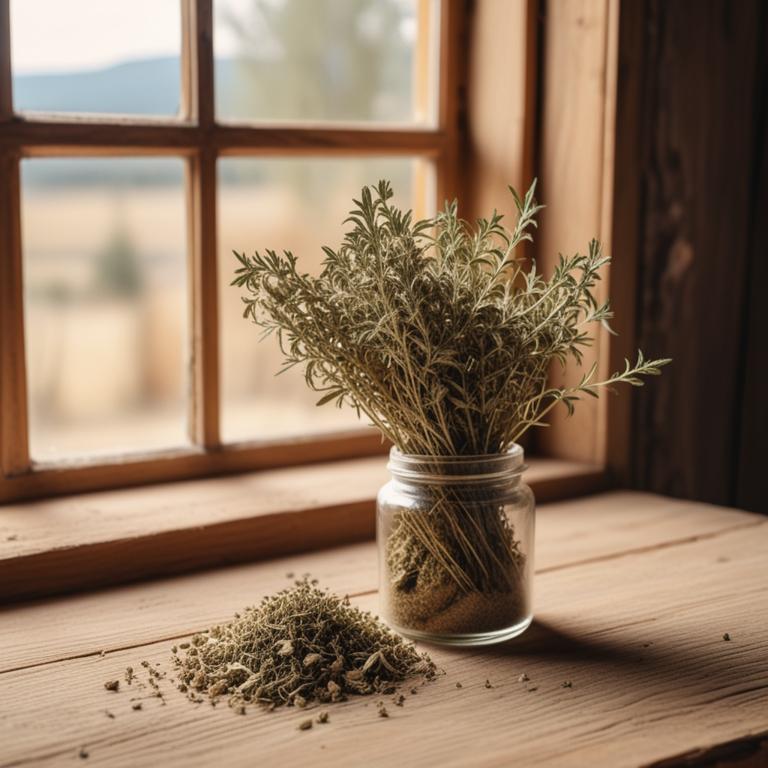
Dry nose, also known as atrophic rhinitis, is a condition where the nasal passages become dry and inflamed, causing discomfort, breathing difficulties, and a constant need to blow the nose.
This can be frustrating, especially when it affects your daily activities, like sleeping, eating, or even talking. The causes of dry nose are often linked to allergies, sinus infections, or prolonged use of nasal decongestants. It can also be caused by environmental factors, such as cold weather, dry air, or exposure to pollutants. In some cases, it may be a symptom of an underlying health issue, like a fungal or bacterial infection. Fortunately, there are some herbal remedies that can help alleviate dry nose symptoms.
Herbs like eucalyptus, peppermint, and thyme are known for their anti-inflammatory and decongestant properties. Eucalyptus, in particular, has been used for centuries to relieve nasal congestion and open up airways. You can use eucalyptus by inhaling its steam, adding it to a warm bath, or making a tea from its leaves. Herbal teas, like eucalyptus and peppermint, can be a soothing way to calm the nasal passages and loosen mucus. Simply steep the herbs in hot water, let it cool, and drink it slowly. You can also add honey to your tea for an extra soothing effect.
Another option is to use a neti pot with a saline solution and eucalyptus oil to rinse your nasal passages and moisturize the airways.
Table of Contents
What initiates a dry nose?
The main causes of dry nose are varied and often related to underlying health conditions or external factors.
One cause is hypocalcemia, a condition where the body has low levels of calcium. This can lead to dry skin and mucous membranes, including the nose, due to the lack of essential nutrients. Another common cause is Rhinitis, which is an inflammation of the nasal passages.
This can be caused by allergies, irritants, or infections, leading to the production of excess mucus and dryness in the nasal passages. Some medications can also cause dry nose, particularly those that dry out the nasal passages, such as decongestants and antihistamines. Dehydration is another cause of dry nose, as the body's tissues, including the nasal passages, become dry and irritated due to lack of water and moisture. Hypothyroidism is a condition where the thyroid gland does not produce enough hormones, leading to dry skin and mucous membranes, including the nose.
Lastly, sinusitis, an infection or inflammation of the sinuses, can cause dry nose as the nasal passages become dry and congested due to the buildup of mucus and other debris.
What benefits can be obtained from using herbs for dry nose?
Using herbs to help with a dry nose can be really beneficial.
For one, they can help moisturize the nasal passages, making it easier to breathe. This can be especially helpful if you live in a dry climate or have a condition that makes your nose dry out easily.
The herbs can also help reduce inflammation and irritation, which can make your nose feel less stuffy. Additionally, some herbs have natural antihistamine properties, which can help alleviate allergy symptoms that can contribute to a dry nose.
This can be a natural and chemical-free way to find relief, making it a great option for those who want to avoid harsh medications or artificial sprays.
Which medicinal herbs are commonly used to treat dry nose?
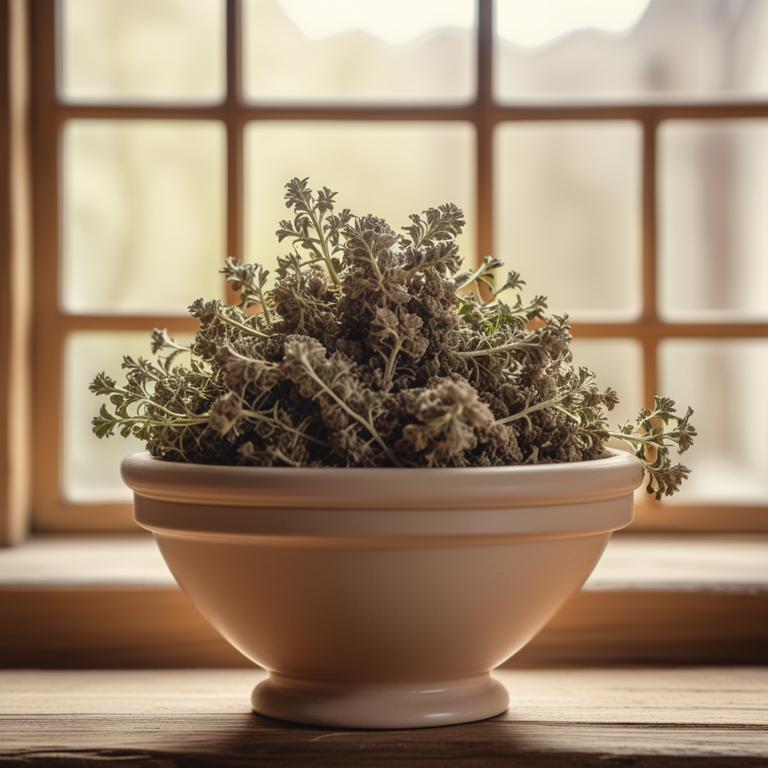
If you're dealing with a dry nose, you might want to consider using some herbs to help soothe the issue.
Thymus vulgaris, or thyme, is one of them. It's got antiseptic properties that can help prevent infections and reduce inflammation in your nose. This means it's not just calming down the dryness, but also protecting you from getting worse. Another herb that can help is Rosmarinus officinalis, or rosemary. It's got a decongestant effect, which means it can help ease congestion in your nose and sinuses. When you're dealing with a dry nose, congestion can be a big problem. But rosemary can help clear out the airways and make breathing easier. Echinacea purpurea, or coneflower, is another herb that can be helpful.
It's got anti-inflammatory properties that can help reduce swelling in your nose and sinuses. This can make it feel more comfortable and help you breathe more easily. Eucalyptus globulus, or eucalyptus, is another popular choice for dry nose. It's got a decongestant effect too, similar to rosemary. But it's also got a menthol-like quality that can help loosen up mucus and make it easier to expel. This can be especially helpful if you're feeling stuffy and congested. Finally, there's Zingiber officinale, or ginger. It's got anti-inflammatory properties that can help reduce swelling and ease pain in your nose and sinuses. It's also got a warming effect that can help increase blood flow and reduce congestion.
This can make it feel more comfortable and help you breathe more easily.
What are the most commonly used herbal remedies for dry nose?
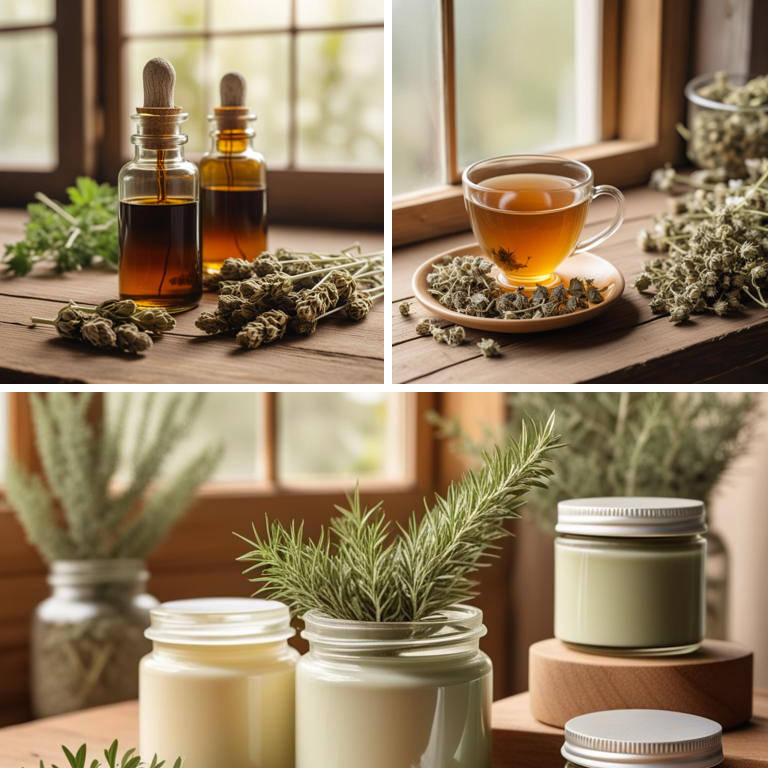
If you have a dry nose, herbal preparations can help soothe and calm it.
One option is a decoction, which is a liquid made by boiling herbs in water. For example, a decoction of slippery elm can help protect and moisturize the mucous membranes in your nose, reducing dryness and irritation. A tincture, on the other hand, is a concentrated liquid made by soaking herbs in a solvent like alcohol. Tinctures of herbs like echinacea can be applied directly to the nose to help reduce inflammation and promote healing.
You can also try drinking herbal tea, which is made by steeping herbs in hot water. Teas like peppermint and chamomile can help calm the nasal passages and reduce dryness, making it easier to breathe. Another option is a salve, which is a thick, ointment-like substance made by mixing herbs with a carrier oil. Salves of herbs like calendula can be applied directly to the nose to help moisturize and soothe dry, irritated skin. Finally, a cream is a thick, smooth substance made by mixing herbs with a moisturizing base.
Creams of herbs like aloe vera can be applied directly to the nose to help lock in moisture and reduce dryness.
Additional Resources:
Which herbs are not suitable for people with a dry nose?
If you have a dry nose, it's best to be careful with certain herbs that can make the problem worse.
Lavandula angustifolia, or lavender, can dry out your nose even more, making it harder to breathe. This is because lavender has a drying effect on the mucous membranes, which are the tissues that produce mucus in your nose. When these tissues get too dry, they can't do their job properly, leading to a stuffy or congested nose. Salvia officinalis, or sage, is another herb that can dry out your nose. Sage contains compounds that can reduce the amount of mucus produced in your nose, which may seem like a good thing, but it can actually make your nose feel drier and more irritated. This can be especially problematic if you already have a dry nose, as it can make it harder to breathe and more uncomfortable overall. Hyssopus officinalis, or hyssop, is a herb that's often used to help with respiratory problems, but it can actually make a dry nose worse.
Hyssop contains compounds that can dry out the mucous membranes in your nose, making it harder to breathe and more uncomfortable. This can be especially problematic if you already have a dry nose, as it can make it harder to breathe and more uncomfortable. Mentha x piperita, or peppermint, can also dry out your nose, especially if you use it too frequently. Peppermint contains compounds that can reduce the amount of mucus produced in your nose, which may seem like a good thing, but it can actually make your nose feel drier and more irritated. This can be especially problematic if you already have a dry nose, as it can make it harder to breathe and more uncomfortable. Cymbopogon citratus, or lemon grass, can also dry out your nose. Lemon grass contains compounds that can reduce the amount of mucus produced in your nose, which may seem like a good thing, but it can actually make your nose feel drier and more irritated.
This can be especially problematic if you already have a dry nose, as it can make it harder to breathe and more uncomfortable.
FAQ
Are there any specific herbs that can prevent dry nose?
Eucalyptus oil is often used to help relieve dry nose.
It's usually added to saline nasal sprays or inhale through steam. You can also try peppermint oil, which has similar properties.
Another option is thyme, which has decongestant properties that might help reduce dryness and congestion in the nose.
Is it safe to use herbal remedies for dry nose during pregnancy?
When you're pregnant, it's a good idea to be cautious with herbal remedies.
Some herbs can affect your body in ways you don't expect, especially during pregnancy. If you're considering using herbal remedies for a dry nose, look for ones that are known to be safe, like eucalyptus oil.
Always follow the instructions carefully.
Are there any herbs that can reduce the frequency of dry nose?
Eucalyptus oil, often found in humidifiers and inhalers, can help reduce the frequency of dry nose.
It has anti-inflammatory properties that soothe and moisturize the nasal passages. When inhaled, its vapors can thin mucus and promote drainage, relieving dryness and congestion.
This natural remedy can be a helpful addition to your dry nose management routine.
Can i combine different herbal remedies for dry nose?
You can combine different herbal remedies to help with a dry nose.
For example, you can mix eucalyptus oil with peppermint oil to create a soothing spray. Another option is to try a combination of honey and aloe vera gel to moisturize your nasal passages.
Experiment with small amounts to see what works best for you.
Related Articles
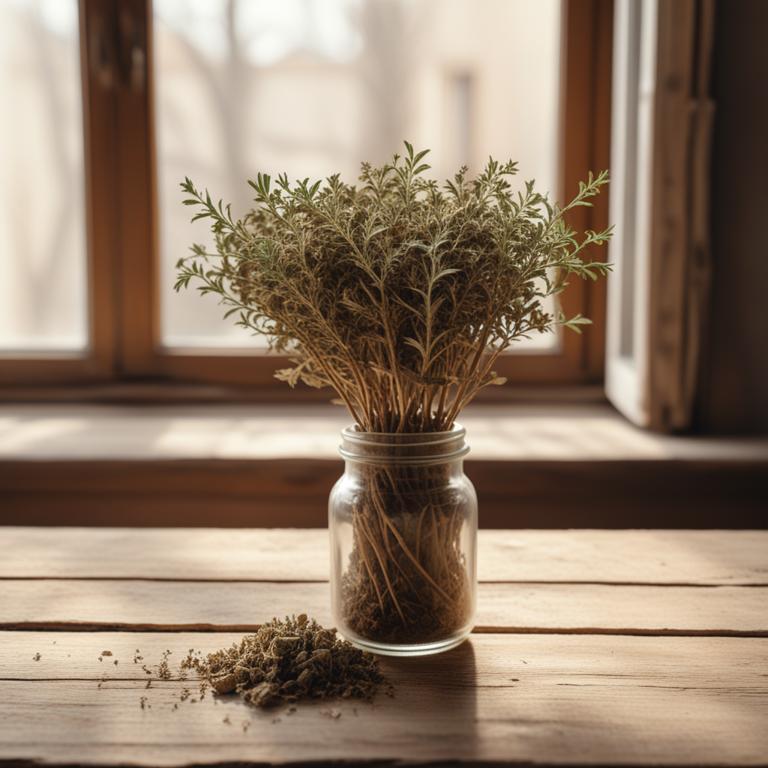
Banish Dry Throat: Exploring Medicinal Herbs and Herbal Preparations for a Soothing Solution

Altitude Sickness Prevention: Causes, Medicinal Herbs, and Natural Remedies
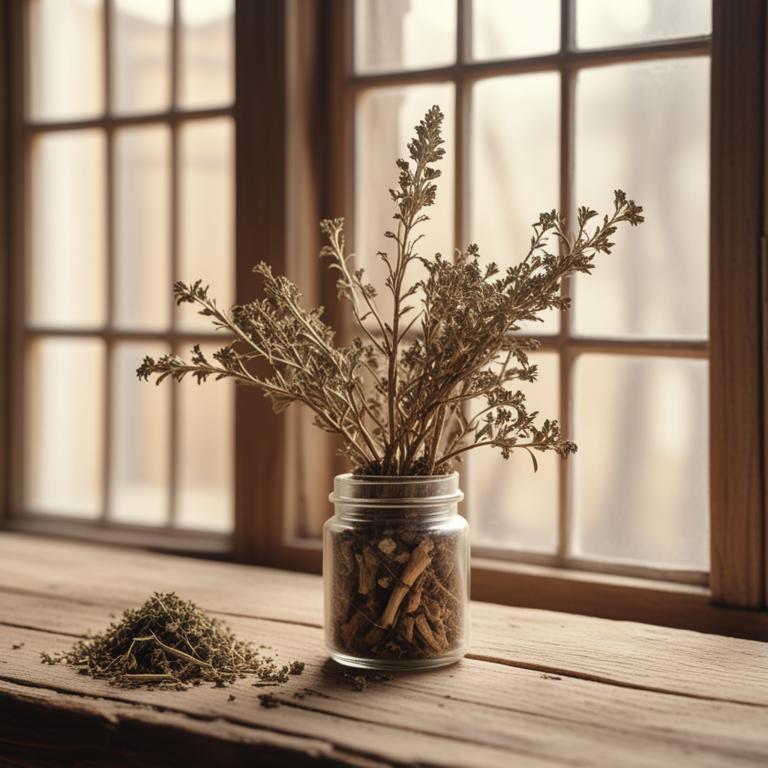
Understanding Coughing Fits: Causes, Medicinal Herbs, and Herbal Preparations for Relief

Throat Congestion: Understanding Causes and Medicinal Herbal Solutions
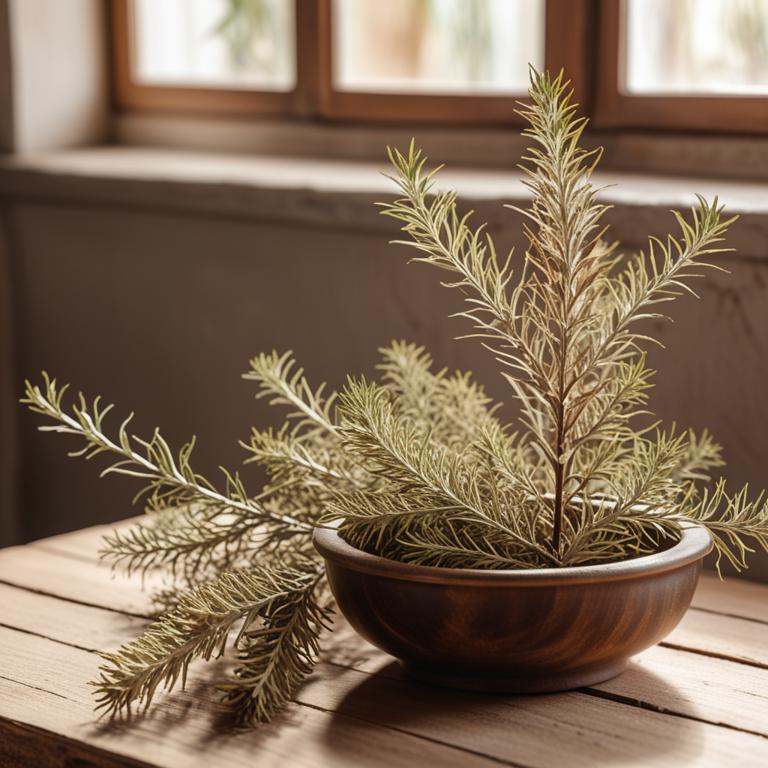
Ear Blockage: Exploring Medicinal Herbs and Natural Remedies
